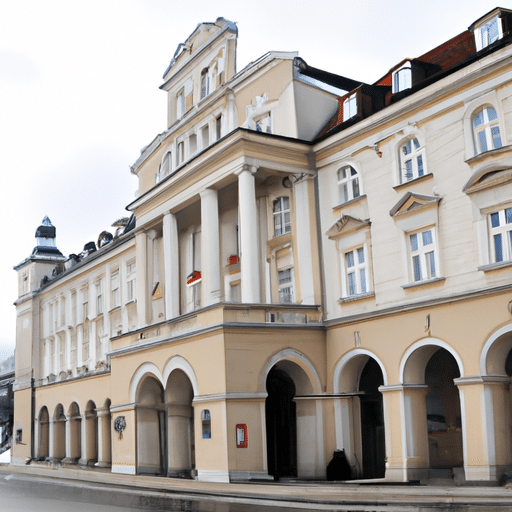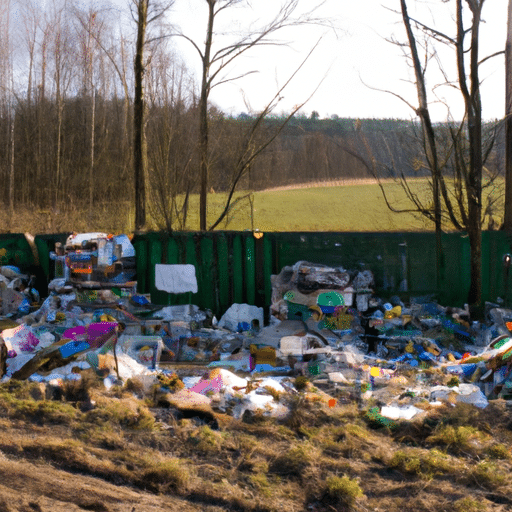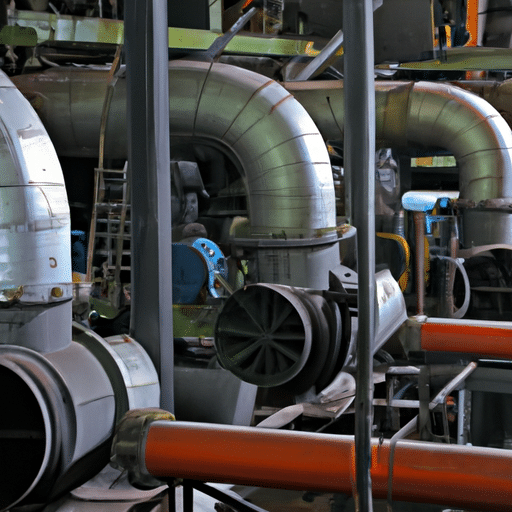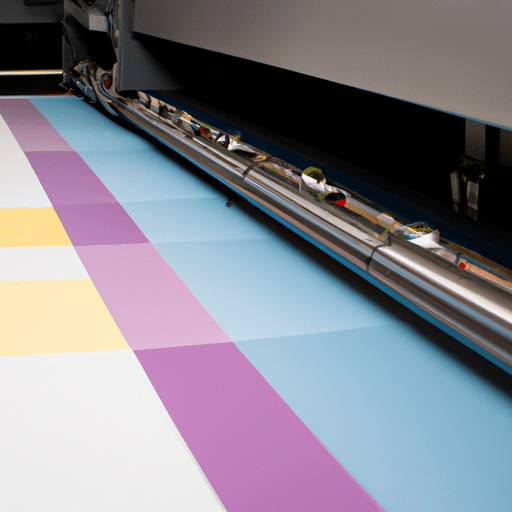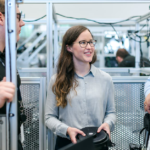The Power of Industry: Understanding the Meaning and Impact of 'Przemysł’ in English
Przemysł – a word that holds great significance in the Polish language, encapsulating the essence of economic development and progress. But what does it truly mean? How does it impact our lives? In this article, we delve deep into the meaning and impact of 'przemysł’ in English.
What is 'Przemysł’?
’Przemysł’ is the Polish word for 'industry’, derived from the Latin word 'industria’ meaning diligence or skill. It refers to the economic sector involved in producing goods or services through manual labor or machinery. The term encompasses various branches such as manufacturing, construction, mining, and energy production.
The Historical Significance
The concept of 'przemysł’ has played a vital role in shaping the history of Poland. During the Industrial Revolution, the country witnessed a rapid transformation from an agrarian society to an industrial powerhouse. This shift led to urbanization, technological advancements, and increased productivity.
Industrialization brought with it numerous benefits, including job opportunities, higher wages, and improved living standards. The growth of 'przemysł’ also fueled the development of infrastructure, transportation networks, and intellectual capital. It became a symbol of progress and modernity, propelling Poland forward as a competitive player in the global economy.
The Impact on Society
The impact of 'przemysł’ on Polish society cannot be overstated. It has touched every aspect of our lives, from the products we use to the jobs we hold. Industries provide employment opportunities for millions of individuals, driving economic growth and social stability.
Moreover, 'przemysł’ fosters innovation and creativity, pushing boundaries and challenging the status quo. It encourages research and development, resulting in the emergence of new technologies and improved products. This constant drive for improvement enhances our quality of life and ensures a sustainable future.
Sustainable Industrial Development
As we move towards a more environmentally conscious world, the concept of sustainable industrial development has gained significant traction. The focus has shifted from mere productivity to responsible production, aiming to minimize the negative impact of industries on the environment.
Sustainable 'przemysł’ emphasizes the efficient use of resources, waste reduction, and renewable energy sources. It promotes ethical practices, social responsibility, and the well-being of workers. By adopting sustainable principles, industries can minimize their carbon footprint and contribute to a more sustainable future for all.
The Future of 'Przemysł’
The future of 'przemysł’ holds both challenges and opportunities. Advancements in technology, such as automation and artificial intelligence, are transforming traditional industries. This digital revolution requires individuals to acquire new skills, adapt to changing job requirements, and embrace innovation.
Furthermore, the transition towards a green economy poses new challenges for industries. The need for renewable energy sources, eco-friendly production methods, and circular economy models are reshaping the industrial landscape. 'Przemysł’ must adapt to these changes, embracing sustainability and becoming a driving force for positive environmental change.
In Conclusion
’Przemysł’ is more than just a word. It represents the engine driving economic growth, technological advancements, and social progress. Its impact on society, both historically and in the present, is undeniable. However, as we look towards the future, it is crucial to embrace sustainability and ensure that 'przemysł’ remains a catalyst for positive change.
Pytania i odpowiedzi
Jaka jest definicja słowa „przemysł”?
Przemysł jest to sektor gospodarki, który zajmuje się produkcją dóbr materialnych za pomocą maszyn i narzędzi.
Jakie są główne rodzaje przemysłu?
Główne rodzaje przemysłu to przemysł wydobywczy, przemysł produkcji dóbr konsumpcyjnych i przemysł produkcji dóbr inwestycyjnych.
Jakie są zalety przemysłu?
Przemysł przyczynia się do wzrostu gospodarczego, tworzenia nowych miejsc pracy, innowacji technologicznych i zwiększenia możliwości eksportowych.
Jaki jest związek między przemysłem a zrównoważonym rozwojem?
Przemysł może mieć zarówno pozytywny, jak i negatywny wpływ na środowisko. Dążenie do zrównoważonego rozwoju wymaga zapewnienia, że przemysł będzie działał w sposób odpowiedzialny i zminimalizuje negatywne skutki dla środowiska.
Jakie są najważniejsze sektory przemysłu w Polsce?
Najważniejsze sektory przemysłu w Polsce to przemysł motoryzacyjny, przemysł spożywczy, przemysł chemiczny i przemysł elektrotechniczny.
Jakie są najważniejsze trendy w przemyśle obecnie?
Wśród najważniejszych trendów w przemyśle obecnie można wymienić: automatyzację procesów, rozwój technologii cyfrowych, zrównoważony rozwój i ekologiczne rozwiązania, oraz personalizację produktów.
Jak zmienił się przemysł w ciągu ostatnich dziesięcioleci?
Przemysł przeszedł znaczną transformację w ciągu ostatnich dziesięcioleci. Rośnie znaczenie nowych technologii, takich jak automatyzacja, robotyka i sztuczna inteligencja. Przemysł staje się również bardziej skoncentrowany na innowacjach i zrównoważonym rozwoju.
Jakie są perspektywy rozwoju przemysłu w przyszłości?
Perspektywy rozwoju przemysłu są nadal dobrze rokujące. Przemysł będzie kontynuował innowacje technologiczne, przede wszystkim w dziedzinach automatyki i sztucznej inteligencji. Zwiększona świadomość zrównoważonego rozwoju wymusi również wprowadzenie odpowiednich zmian w sektorze przemysłowym.
Jaką rolę odgrywa przemysł w światowej gospodarce?
Przemysł odgrywa kluczową rolę w światowej gospodarce. Jest głównym źródłem produkcji dóbr materialnych, a także stanowi podstawę dla rozwoju innych sektorów gospodarki.
Jakie są wyzwania, przed którymi stoi przemysł w obecnych czasach?
Przemysł stoi przed wieloma wyzwaniami, takimi jak konieczność dostosowania się do szybkich zmian technologicznych, zapewnienie zrównoważonego rozwoju, walka ze zmianami klimatu, oraz konkurowanie na globalnym rynku.






